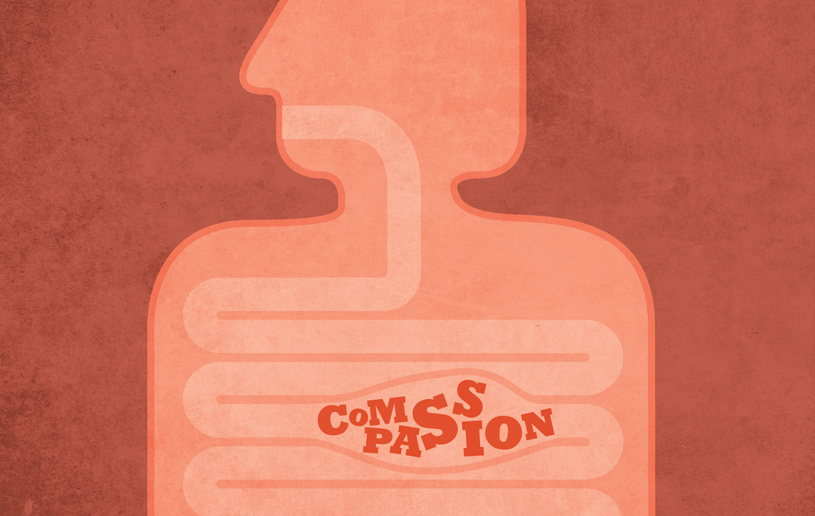
God gave it. Jesus modelled it. Joseph felt it. Daniel received it. The parables of the Good Samaritan and the Prodigal taught it. We are encouraged to do it. It is often inconvenient, messy, and time-consuming, yet richly fulfilling. But what is IT? It is compassion.
The Greek word for compassion is splagchnizomai, which literally means the bowels (heart, lung, spleen). At first it sounds strange. However, it is in your gut you feel your most passionate feelings like anger, love, or tenderness. Compassion means to be moved to a gut level feeling of distress over the suffering of another.
Reading the Scriptures reveals compassion is a feeling that motivates people to act. The word compassion is most commonly followed by the word “on.” For example, Jesus had compassion on… the crowds, the woman, Mary. I draw your attention to the word “on,” because it reveals compassion starts in relationship. The Israelite’s God, Yahweh was a God full of compassion (Psalm 78:38; 86:15; 111:4; 112:4; 145:8; Lamentations 3:22). Moreover, we see in the New Testament, that Jesus Christ’s compassion was at the heart of His earthly ministry and teachings. God, seeking relationship with us, is in contact with and supports you! (Matthew 9:36, 14:14, 18:27; Mark 8:2; Luke 10:33; Hebrews 5:2)
I had never given the idea of compassion much thought until a few months ago when in the midst of a friend’s crisis, I felt gut wrenching pain and realized, for the first time, this was what true compassion felt like. How could this be? I grew up in a home open to those without family, walked alongside friends in crisis, and currently serve in a street level church of marginalized, homeless, addicted and broken people.
The tension-filled answer is that I was forced from my sterile, safe, arm’s length do-gooding to in my face, up to my neck, messy suffering alongside. I identified three changes within me. First, hot tears of suffering and hopelessness penetrated my heart. Second, more than being just moved, I felt frightened because I was being woven into my friend’s pain and suffering. Finally—and most powerfully—was the reality that my well-meaning act of doing good had failed. The truth was I added to her pain. My lack of sensitivity and ability to be there in a way she needed were my failures to own.
In the heat of her crisis, I selfishly tried to be there unconditionally for her, choosing judgmental rules over relationship (or in Christianese law over grace), which caused her to withdraw from me. Gratefully, there was another friend who compassionately carried her. My friend and I did reconnect and in raw experience, I am learning to exercise and hold in tension my compassionate muscle with my conviction muscle.
Compassion means to be present, to give hope, share in the circumstances, and therefore know what is needed. Sometimes compassion is given for a short season in another’s life, such as the death of a loved one, and for others it is a life long vocation. Both are essential.
Compassion is not about fixing people or their problems. Fixing is a personal, hidden agenda to keep the pain at a distance. Rather than simply suffering with our friends, we tend to give advice. If they follow our advice correctly, healing comes and all is well. If they don’t take our advice, we are off the hook because we think we did what we could so continued suffering is their own fault.
In essence, compassion is at the core of being human. I have learned that not only do we make God more acceptable by ignoring the parts we don’t like or don’t understand about Him, but we also put God in a box so He is not all-powerful and Glorious Mystery. By doing this we limit “being human” so we can minimize suffering.
So what now? Do you have the guts and courage to show compassion? Is there someone in your life who feels lonely and isolated? Are you willing to take the risk of listening, getting messy, taking time and suffering alongside? It will make a difference.
Allow your friends to be fully human and at the same time encourage God’s healing and hope. For me, my discovery of true compassion made a difference in my own life and more importantly, the life of my struggling friend.

